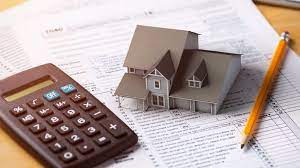A Property Tax is an ad valorem tax based on the value of your property. You may also hear this tax referred to as a millage rate. This tax varies depending on where you live. In some areas, this tax can be as low as a few dollars.
Real estate taxes
Real estate taxes are the cost of owning land or a building. They are different from taxes on personal property, rent, or other intangible investments. General real estate taxes are based on the value of a property, while special assessments are based on a property’s benefit. In this case, Sandra paid $900 in real estate taxes for the year in which she sold the property.
Tax rates for real estate vary in different states. These rates also depend on the neighborhood and other inbuilt amenities. While you may not be able to predict the amount of real estate taxes you will have to pay, you can prepare yourself and understand the tax filing process. There are a few important real estate tax tips you should keep in mind when preparing for tax season.
Real estate taxes vary by state and county. Most people use the terms “property tax” interchangeably, but they aren’t the same thing. Both types of taxes are collected by the municipality and fund community services. In addition, there are special assessment taxes that localities collect when they need money for a specific project or service. The calculation process for these taxes is a complicated one that varies from state to state. If you’re not familiar with it, consult a financial advisor. They will be able to help you optimize your tax strategy.
Property taxes are an important part of your mortgage payments. They include taxes on the value of your property. Real estate taxes are paid by the property owner and go to the local government or state government. Property taxes are the most common tax type, but there are different types of property.
Millage rates
A property’s millage rate determines the amount of property taxes a homeowner will have to pay. The mill rate varies from municipality to municipality. You can find the mill rate of a property by looking at the deed or by contacting the local tax office. You can also find the mill rate by visiting the eEqualization website.
A property’s millage rate is set by the county, township, or city in which it’s located. It also determines if the property is homestead or non-homestead. The assessor’s office will also tell you whether the property is a homestead or non-homestead property. This information is critical to determining how much your property tax bill should be.
In Palm Beach County, the millage rate is 8.34 cents per $1,000 of assessed value. Although it’s not a certainty, city budget officials are relying on the assumption that the millage rate won’t rise. The city will make a final decision on millage rates in September. In most cases, homeowners can appeal the valuation of their property, but not the millage rate.
The average millage rate in Nassau County, New York, is 26.4 mills. This would translate to $7,920 in annual property taxes for a $300,000 home. However, this rate is lower than the state average. The effective tax rate in Nassau County is closer to $6,330, or 2.11%.
Payment schedules
There are several options available when it comes to property taxes. The Assessor-Treasurer’s Office offers monthly payment plans through an escrow account. These payments depend on the assessed value of the property, and are usually mailed about a month before the taxes are due. If you want to avoid making a large payment every six months, a monthly payment plan is an excellent option. You can sign up for an escrow account for as little as $10 per month and then pay your property taxes on a regular basis.
The deadline to pay property taxes is the 15th of every month. However, if the 15th falls on a weekend or holiday, you can pay on the next business day. In addition, you can pay your property taxes on the 1st of July and October. The tax office considers payments made on these days as postmarked envelopes and will not charge interest.
If you are behind on your property taxes, you can request to establish a payment plan. This option allows you to make monthly payments, up to the amount you can afford. In order to set up a payment plan, you’ll need to submit a payment agreement request form to the Department of Finance. You’ll also need to provide proof of identity and a relationship to the property. This proof can be a most recent deed, a power of attorney, or the corporation papers of the property you’re paying taxes on.
You can also opt for a semiannual payment schedule. This means that you will be making a payment of approximately $75. The county will then issue a bill in December letting you know what the balance is for your second installment.



